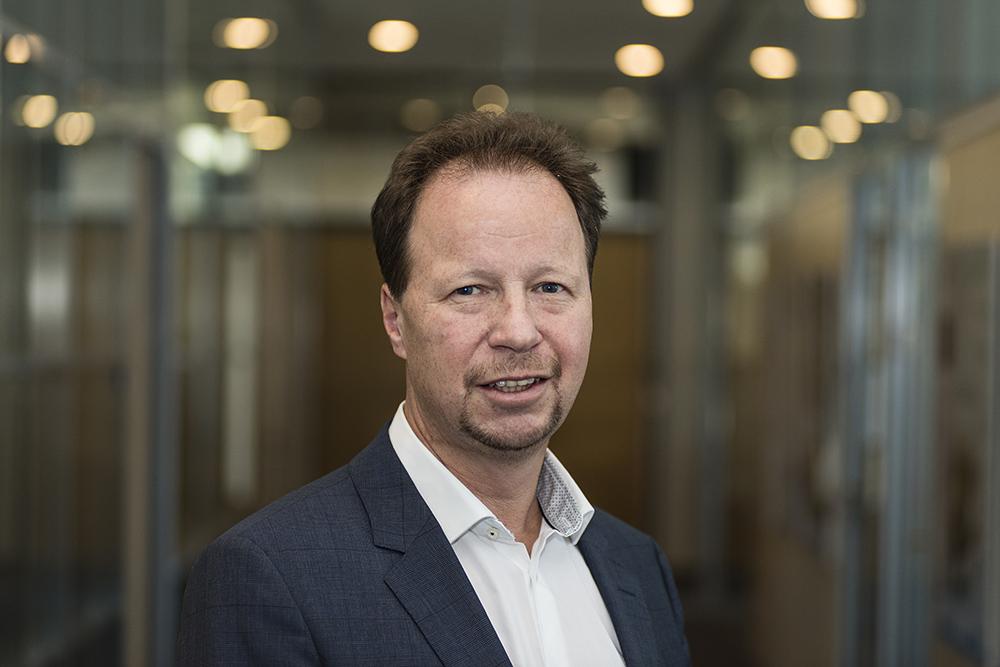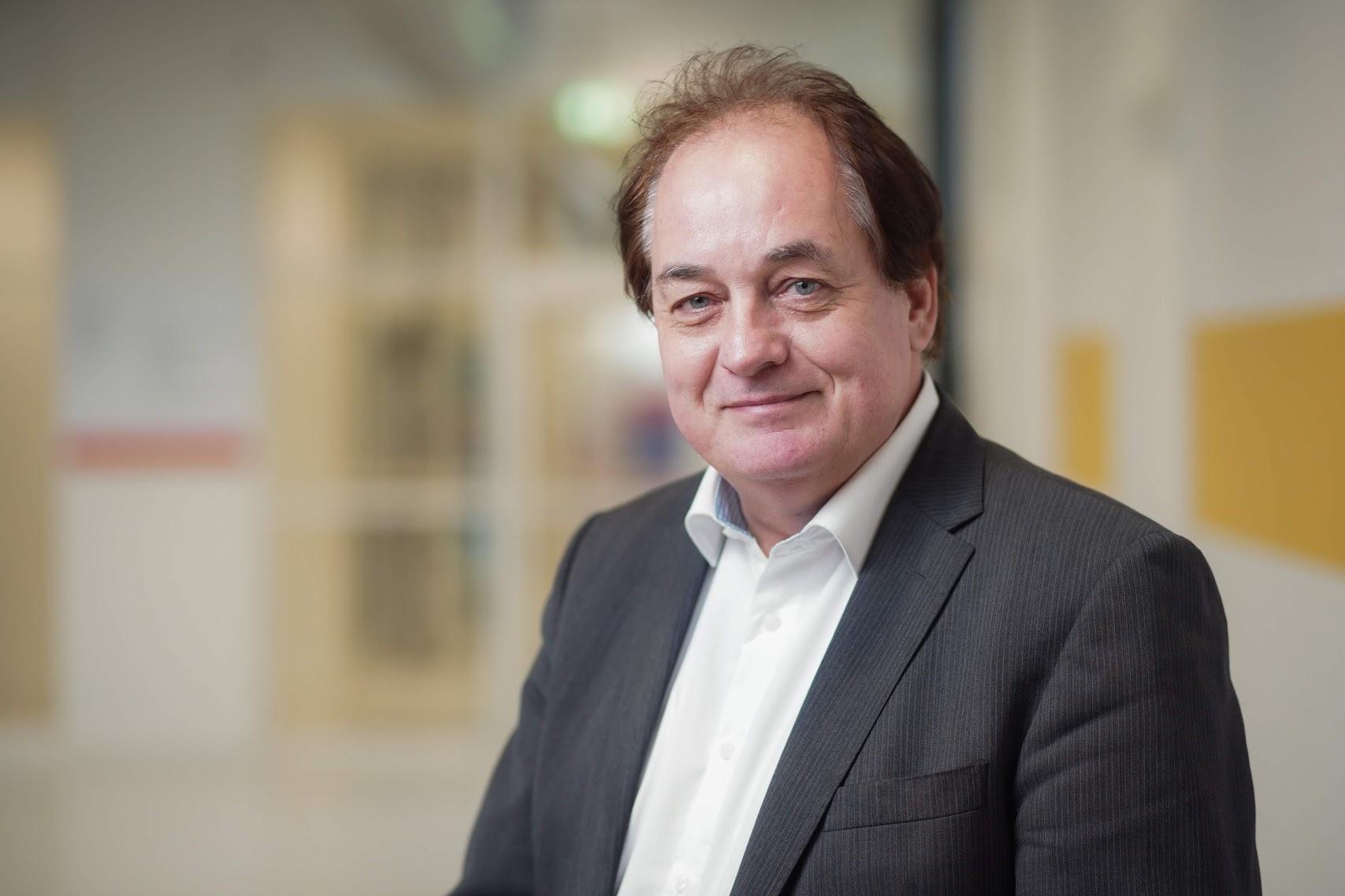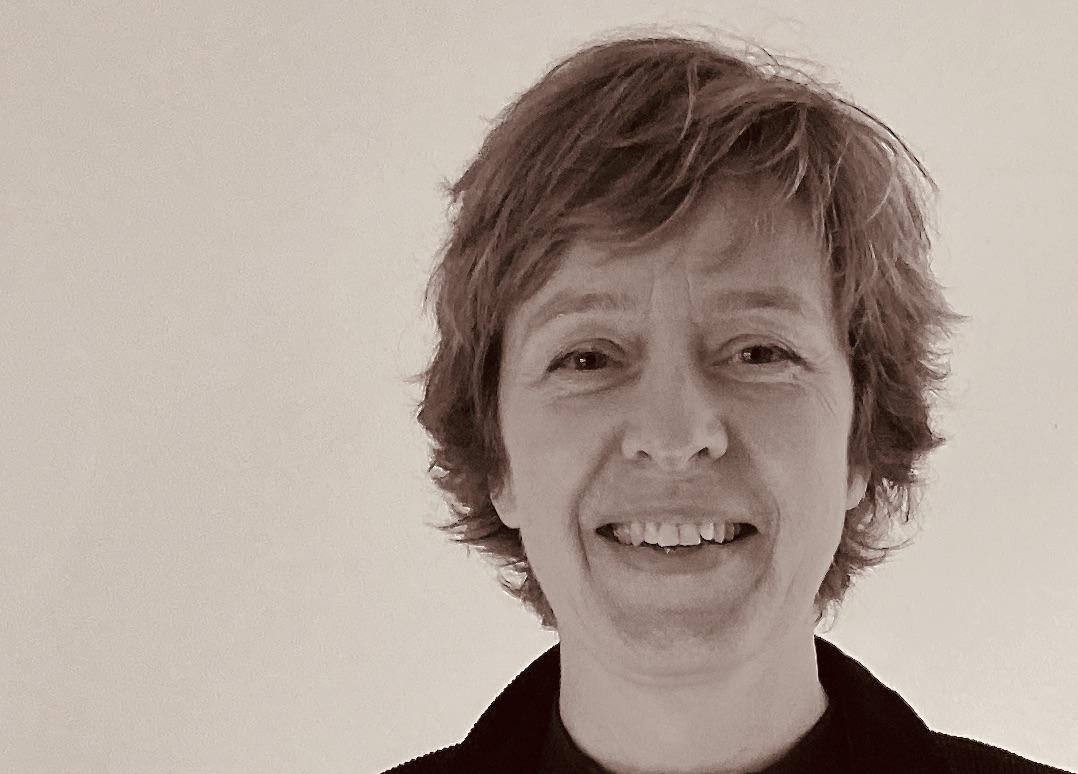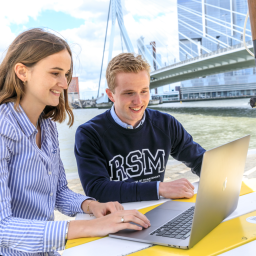Meet the full academic spectrum, humanities, exact sciences and social sciences , of the educational partnership of Leiden-Delft-Erasmus.
As of February this year, TU Delft has appointed prof.dr.ir. Hans Hellendoorn as pro vice rector of Joint Education. His appointment hints at what TU Delft expects of its up-and-coming engineers.

Educational collaboration is an established practice, and this will take it another step forward. Dean of LDE Wim van den Doel and LDE project manager education Marja Verstelle ask Hans Hellendoorn to respond to nine propositions about the how and why of this increased collaboration. He then asks them a single question in return.
It is important for students from various disciplines to collaborate on a project requiring diverse skills as it will increase their understanding of the divergent thinking styles used in other disciplines
Proposition 1: In the future, you will not only enrol in courses at your own university but at other universities as well.
Hans Hellendoorn: ‘Universities design a curriculum to educate students in a certain discipline. This will not change. It is, however, becoming ever more common to take elective courses and to do minors at another university. Students increasingly want to explore multidisciplinarity. They may, for example, obtain a bachelor’s degree at one university, and a master’s degree at another. In the future, it will be possible to custom-design your preferred study, combining courses from various universities.
Proposition 2: The intermixing of disciplines will continue. Therefore, educational offerings need to change.
Hans Hellendoorn: ‘There is an increase in two or more universities offering a combined curriculum. The world is changing rapidly. Single discipline approaches will still be important but, in preparation for lifelong learning, we will see an increased demand for developing so-called ‘soft skills’ and ‘transferable skills.’
Proposition 3: In Delft, we want our students to become socially aware, creative, and enterprising technicians – people who commonly enrol in a course in Rotterdam or Leiden.
Hans Hellendoorn: ‘That is certainly a true. But it is even more important for students from various disciplines to collaborate on a project requiring diverse skills as it will increase their understanding of the divergent thinking styles used in other disciplines. Unfortunately, just taking a course at another university does not mean that a student really assimilates a divergent thinking style, such as process-oriented thinking, thinking in constructs, inside-out thinking or problem-solving.’
Proposition 4: Because they lack sufficient prior knowledge, it is more difficult for students from Rotterdam and Leiden to take courses in Delft than the other way around.
Hans Hellendoorn: ‘It is up to TU Delft to address this. For the minors, TU Delft can increase the use of software in solving mathematical and mechanical problems. Outside students have to be able to apply certain methodologies whereas TU Delft students also need to understand the underlying principles.’
Proposition 5: TU Delft already offers too many minors. A further increase to accommodate LDE-students is out of the question.
Hans Hellendoorn: ‘We are actively recruiting for minors that will accept students from Rotterdam and Leiden. Our own students benefit from meeting and collaborating with these other students. We want the TU Delft minors to gradually become more open. We therefore stress the importance of accepting outside students whenever a new minor is proposed.’
Proposition 6: The only way to prepare students for working in multi- and inter-disciplinary teams, is to teach them collaboration skills.
Hans Hellendoorn: ‘Not so. Any problem our students work on involves more than technical aspects only. Our students often are a bit too solution-oriented. Other disciplines can open their eyes towards the bigger picture, highlighting other aspects.’
Proposition 7: Leiden-Delft-Erasmus should aim for triple degrees, with students obtaining a degree at all three universities.
Hans Hellendoorn: ‘Leiden-Delft-Erasmus should aim for double degrees and keep an open mind towards triple degrees. It is a good thing to explicitly offer double degrees. Think of econometrics in Rotterdam and Systems & Control in Delft, or Politics, Policy and Management [ME2] in Leiden and Civil Engineering in Delft.’
Proposition 8: We have to offer our students maximum choice and minimal restrictions.
Hans Hellendoorn: ‘We determine the educational programs by consulting the Board of Studies as well as the professional field. I don’t think it makes sense to leave this to prospective students. What does make sense is to offer students a “moment of contemplation” as part of the program, allowing them to reflect on their choice of courses and how these fit into the bigger picture.’
Proposition 9: We will soon offer a course on Artificial Intelligence, employing a multidisciplinary approach to ensure that students from all three universities will be able to grasp the essence.
Hans Hellendoorn: ‘I prefer us to first understand how AI – and what kind of AI – adds value to a certain discipline. We can then ensure long-lasting understanding by offering a course in AI tailored to that discipline.’
Question by Hans Hellendoorn to Dean of LDE Wim van den Doel and LDE educational project manager Marja Verstelle:
When it comes to education at the bachelor’s level, we already collaborate on minors and we have joint programmes. How do we increase our collaboration at the master’s level, considering a one-year master’s program in Rotterdam and Leiden and a two-year master’s in Delft?
Wim van den Doel:
 ‘There are two-years master’s degrees in both Leiden and, to a lesser degree, Rotterdam. All master’s degrees at the Faculty of Science in Leiden are two-year programs and the humanities and social sciences offer various two-year master’s programs as well. The extended program offers more opportunities for interdisciplinary education.’
‘There are two-years master’s degrees in both Leiden and, to a lesser degree, Rotterdam. All master’s degrees at the Faculty of Science in Leiden are two-year programs and the humanities and social sciences offer various two-year master’s programs as well. The extended program offers more opportunities for interdisciplinary education.’
‘We may be able to reach some of the students enrolled in a one-year master’s program. These are the students who already do an internship or study abroad, next to their 60 European Credits (EC). If it is of enough interest to them, I think this group of students will be motivated to take part in another 15 EC multidisciplinary project.’
Marja Verstelle:
‘Looking at the current LDE collaborations at the master’s level, you’ll notice most of these to be two-year degrees or master tracks combining engineering with either an exact science or medicine. The LDE master track Governance of Migration and Diversion, in which TU Delft offers a single course as well, is an exception.’
 ‘You already pointed out that collaborations within LDE provide for enriched educational offerings, and that they can also increase our students’ understanding of divergent thinking styles across various disciplines. These aims are best achieved through practical problems, project education and so-called challenge-based education. This, in turn, calls for educational innovation – to reconsider our goals in educating.’
‘You already pointed out that collaborations within LDE provide for enriched educational offerings, and that they can also increase our students’ understanding of divergent thinking styles across various disciplines. These aims are best achieved through practical problems, project education and so-called challenge-based education. This, in turn, calls for educational innovation – to reconsider our goals in educating.’
Text: Merel Engelsman - Simplifaai



